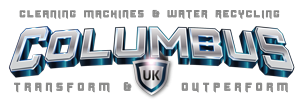Water is a vital component in the automotive industry, serving various functions from cooling engines to cleaning windshields and ensuring brake system integrity. To maintain the efficiency and safety of these systems, precision water testing plays a pivotal role. This article explores the significance of precision water testing in the automotive sector, emphasizing its role in water recycling and ensuring vehicle functionality.
The Role of Water in the Automotive Industry
Water plays a multifaceted role in the automotive industry, affecting vehicle performance, longevity, and safety in several ways:
Engine Cooling: Engines generate substantial heat during operation. The cooling system, often a water-based coolant, regulates this heat to prevent overheating and damage. Ensuring the proper water-to-coolant ratio is critical for optimal engine performance and longevity.
Windshield Washer Fluid: Clean windshields are essential for driver visibility and safety. Windshield washer fluid, containing water as a base, must be free of impurities and contaminants to effectively remove dirt, debris, and bugs.
Brake Fluid Integrity: Brake fluid, a hydraulic fluid, is essential for transferring the force from the brake pedal to the brake pads. The presence of water in brake fluid can lead to reduced braking performance, brake fade, and even brake system failure. Precise water testing is crucial to maintain the integrity of this critical safety system.
Applications of Precision Water Testing in the Automotive Industry
Precision water testing in the automotive sector encompasses several critical applications, each tailored to specific vehicle functions:
Coolant and Antifreeze Testing: Water testing is employed to evaluate the quality and composition of engine coolant and antifreeze mixtures. Maintaining the correct coolant mixture helps prevent engine damage, corrosion, and freezing, thus extending the life of the engine.
Washer Fluid Quality Assessment: The quality of washer fluid is a key factor in maintaining visibility and safety while driving. Testing is conducted to assess the presence of impurities and contaminants that might hinder the cleaning efficiency and safety of the windshield.
Brake Fluid Analysis: Brake fluid is subjected to water testing to detect and quantify the presence of water contamination. Timely testing helps ensure the brake system’s performance and safety, preventing potential brake failure.
Technologies Used in Precision Water Testing
Precision water testing in the automotive industry relies on a range of testing methods and technologies, each suited to specific applications:
Refractometry: This technique measures the refractive index of a solution, which changes with its water content. It’s widely employed in testing coolant and washer fluid.
Karl Fischer Titration: A highly accurate method used for measuring water content in brake fluid. It can detect water in trace amounts and is essential for maintaining brake system integrity.
Hydrometers: These instruments measure the specific gravity of a fluid, which is influenced by its water content. Hydrometers are commonly used for routine coolant testing.
Infrared Spectroscopy: This method is employed for detailed analysis of fluid composition, including brake fluid, to identify water contamination and fluid degradation.
Electrochemical Sensors: Real-time monitoring of water content in various fluids, such as engine coolant, is made possible through the use of electrochemical sensors.
Benefits of Precision Water Testing
The precision water testing approach in the automotive industry offers several advantages:
Preventative Maintenance: Routine water testing prevents potential damage to automotive systems, ensuring the longevity and reliability of vehicles.
Enhanced Safety: Testing the quality of brake and washer fluids contributes to driver and passenger safety by ensuring optimal brake system performance and visibility.
Extended Vehicle Lifespan: Maintaining the correct coolant mixture contributes to engine longevity, potentially increasing the lifespan of vehicles.
Cost Savings: Early detection and prevention of issues through water testing can lead to significant cost savings by avoiding expensive repairs or part replacements.
Conclusion
In conclusion, precision water testing is a fundamental aspect of the automotive industry, playing a pivotal role in ensuring the efficiency and safety of various vehicle components dependent on water-based fluids. Advanced testing methods and technologies are continuously evolving to meet the industry’s increasingly stringent standards for precision and safety. Water testing not only enhances vehicle performance and longevity but also supports sustainability by promoting efficient water recycling in automotive systems,
Contact Us
Columbus UK are based in Darlington, County Durham. We supply water recycling systems throughout mainland Britain, including Newcastle Upon Tyne, Teesside, Durham and Wearside.
We cover all areas from Scotland, North East of England, West Midlands down to London.
Email: info@columbusuk.co.uk
Tel: 01325 371 439





